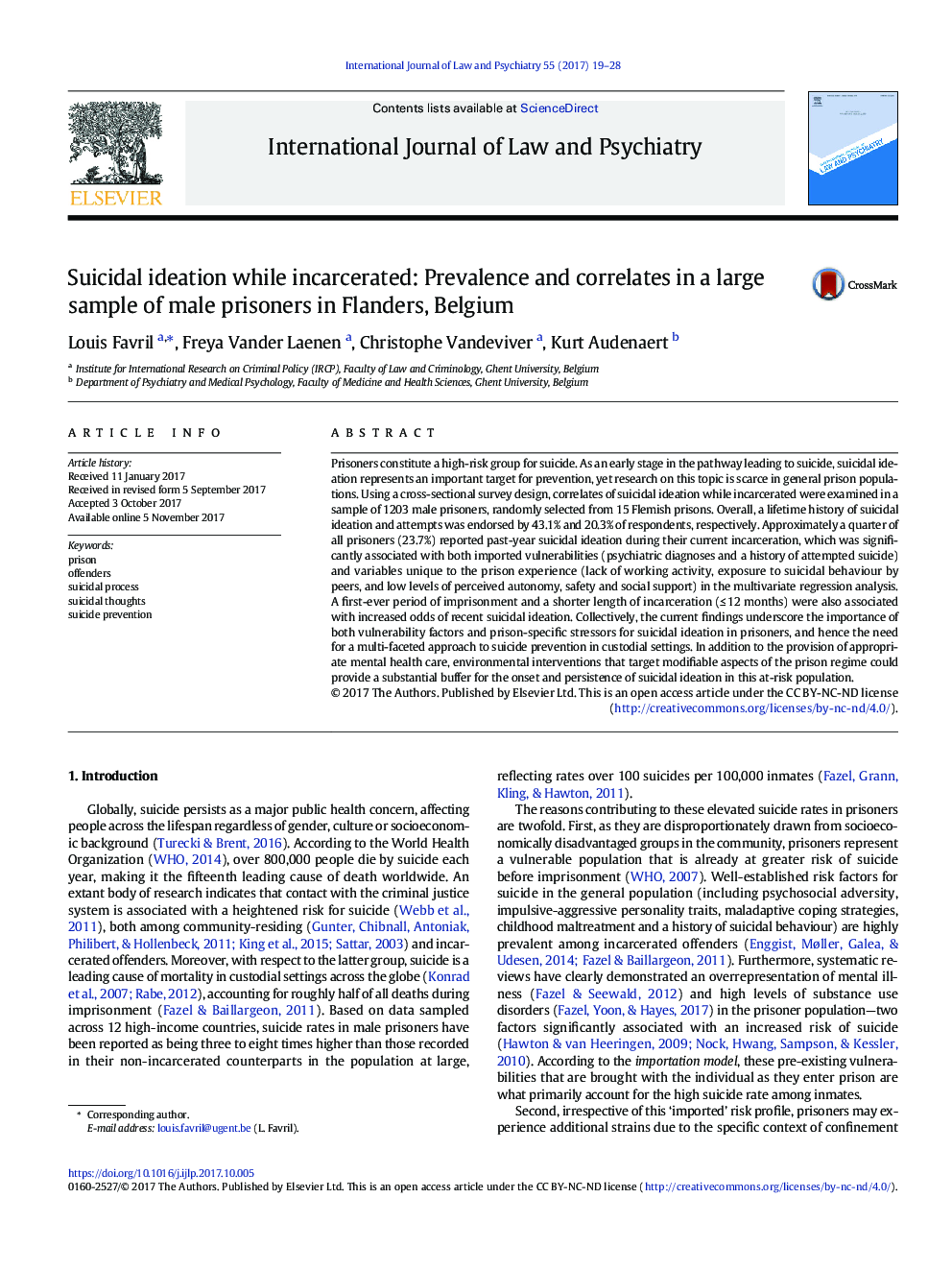| Article ID | Journal | Published Year | Pages | File Type |
|---|---|---|---|---|
| 6554559 | International Journal of Law and Psychiatry | 2017 | 10 Pages |
Abstract
Prisoners constitute a high-risk group for suicide. As an early stage in the pathway leading to suicide, suicidal ideation represents an important target for prevention, yet research on this topic is scarce in general prison populations. Using a cross-sectional survey design, correlates of suicidal ideation while incarcerated were examined in a sample of 1203 male prisoners, randomly selected from 15 Flemish prisons. Overall, a lifetime history of suicidal ideation and attempts was endorsed by 43.1% and 20.3% of respondents, respectively. Approximately a quarter of all prisoners (23.7%) reported past-year suicidal ideation during their current incarceration, which was significantly associated with both imported vulnerabilities (psychiatric diagnoses and a history of attempted suicide) and variables unique to the prison experience (lack of working activity, exposure to suicidal behaviour by peers, and low levels of perceived autonomy, safety and social support) in the multivariate regression analysis. A first-ever period of imprisonment and a shorter length of incarceration (â¤Â 12 months) were also associated with increased odds of recent suicidal ideation. Collectively, the current findings underscore the importance of both vulnerability factors and prison-specific stressors for suicidal ideation in prisoners, and hence the need for a multi-faceted approach to suicide prevention in custodial settings. In addition to the provision of appropriate mental health care, environmental interventions that target modifiable aspects of the prison regime could provide a substantial buffer for the onset and persistence of suicidal ideation in this at-risk population.
Related Topics
Health Sciences
Medicine and Dentistry
Forensic Medicine
Authors
Louis Favril, Freya Vander Laenen, Christophe Vandeviver, Kurt Audenaert,
